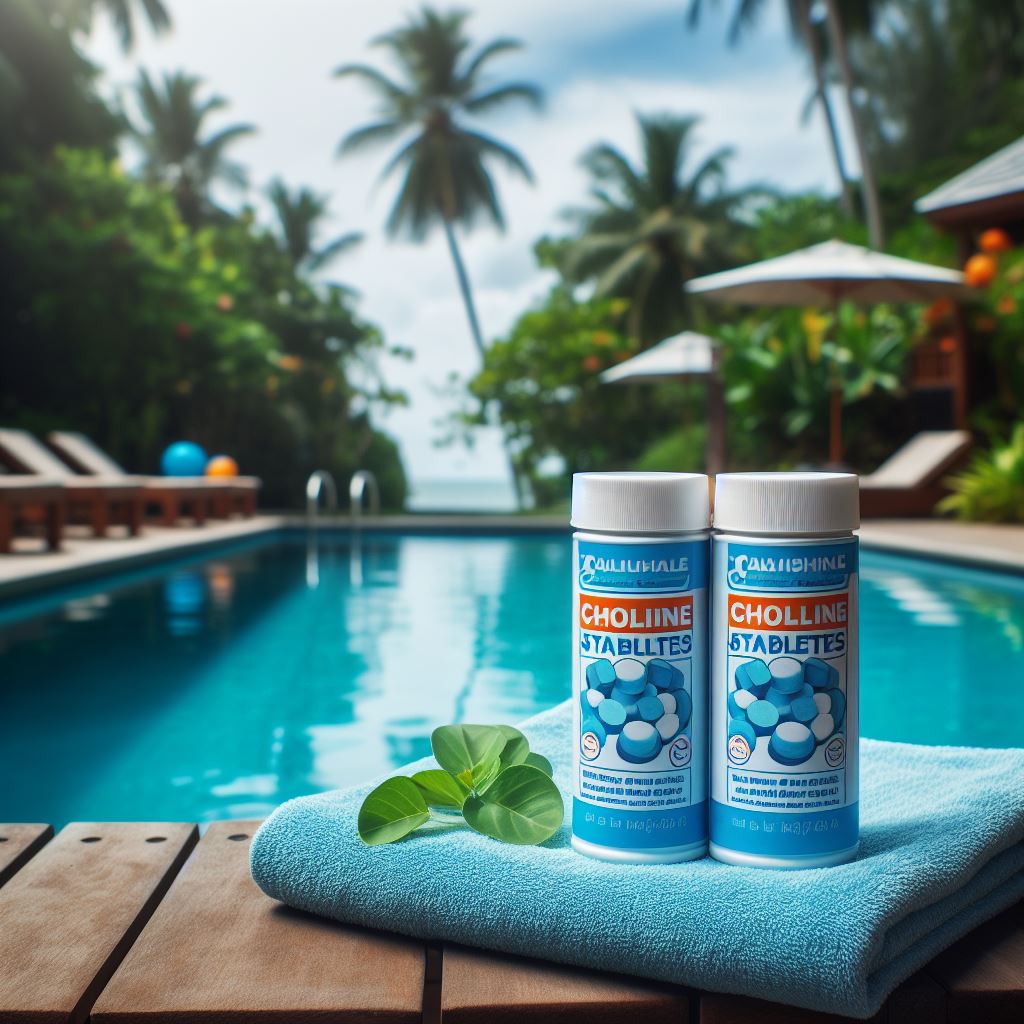The production of pool chlorine tablets involves a meticulous process to ensure effectiveness and safety in maintaining water quality. In this comprehensive article, we will explore the intricate journey of crafting chlorine tablets, from production methods to the rigorous quality monitoring measures employed to guarantee the delivery of a reliable and efficient pool disinfection solution.

Chlorine Tablet Production Process
Raw Material Selection
The production begins with the careful selection of raw materials, primarily chlorine compounds. These compounds serve as the foundation for the tablet’s chlorine content.
Formulation and Mixing
The chosen chlorine compounds are precisely formulated to achieve the desired chlorine concentration in the tablets.
The formulation process includes blending chlorine with other stabilizers and additives to enhance tablet performance and stability.
Tablet Pressing
The formulated mixture is then subjected to tablet pressing, where it is compressed into tablet form.
Tablet pressing machines ensure uniformity in size and density, a crucial factor for consistent chlorine release.
Coating Application
Some chlorine tablets undergo a coating process to control the rate of dissolution.
Coating materials are carefully selected to ensure compatibility with the tablet’s chlorine formulation.
Drying and Packaging
The pressed and coated tablets are then dried to remove excess moisture.
Following drying, the tablets undergo stringent quality checks before being packaged for distribution.
Quality Monitoring During Production
Chlorine Concentration Testing
Regular testing is conducted throughout the production process to monitor and verify the chlorine concentration in each batch.
High-precision equipment ensures accuracy in measuring chlorine levels to meet specified standards.
Tablet Dissolution Rate Checks
The dissolution rate of the tablets is closely monitored during the production process.
This involves testing how quickly the tablets dissolve in water to ensure the desired release pattern.
Coating Integrity Assessment
For tablets with coatings, the integrity of the coating is assessed to confirm its ability to regulate chlorine release.
Coating thickness and uniformity are critical factors in maintaining consistent tablet performance.
Physical Inspection
Tablets undergo physical inspection for size, shape, and structural integrity.
Any deviations from the specified parameters are addressed promptly to maintain quality standards.
Post-Production Quality Assurance
Batch Testing
Random batches of finished products are subjected to additional testing after production.
This batch testing ensures that the quality standards established during production are consistently met.
Storage Stability Assessment
Some tablets undergo storage stability testing to evaluate their performance over time.
This helps assess the tablets’ ability to maintain their efficacy during transportation, storage, and usage.
Environmental Impact Evaluation
Manufacturers may conduct assessments to determine the environmental impact of the tablets.
This includes evaluating the biodegradability and eco-friendliness of the tablet components.
Regulatory Compliance
Adherence to Industry Standards
Pool chlorine tablet manufacturers adhere to industry standards and regulations.
Compliance with guidelines ensures that the tablets meet safety and efficacy requirements.
Quality Certification
Obtaining quality certifications from relevant authorities is common in the chlorine tablet production industry.
Certifications validate the tablets’ adherence to specified quality and safety standards.
Continuous Improvement Initiatives
Feedback Integration
Feedback from consumers, pool professionals, and quality control assessments is incorporated into the production process.
Continuous improvement initiatives aim to address any emerging issues and enhance tablet performance.
Research and Development
Ongoing research and development efforts explore new formulations, coatings, and production techniques.
The goal is to stay at the forefront of innovation, offering improved chlorine tablets to meet evolving pool maintenance needs.
Conclusion
In conclusion, the production of pool chlorine tablets is a sophisticated process that combines precision, testing, and compliance with industry standards. From raw material selection to quality monitoring during and after production, manufacturers employ a comprehensive approach to ensure the tablets’ effectiveness, safety, and environmental impact. The continuous pursuit of quality improvement and adherence to regulatory standards underscore the commitment of chlorine tablet producers to providing a reliable and efficient solution for maintaining pristine swimming pool water.

 Instant
Quote
Instant
Quote Email
Us
Email
Us